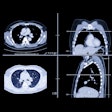
NEW YORK (Reuters Health), Aug 9 - Children with arthritis have a significantly increased risk of fracture in childhood, adolescence, and possibly adulthood, recent research indicates.
Dr. Jon Michael (Sandy) Burnham, of the Children's Hospital of Philadelphia, Pennsylvania, and colleagues identified all 1,939 subjects diagnosed with arthritis between the ages of 1 and 19 years in the United Kingdom General Practice Research Database. Control subjects (n=207,072) were sex- and age-matched individuals from a practice that included a subject with arthritis.
As reported in the August issue of the Annals of Rheumatic Diseases, the subjects with arthritis had a median age at diagnosis of 10.9 years. Median follow-up was 3.90 years and 3.95 years in the arthritis and control groups, respectively.
During follow-up, 129 (6.7%) first fractures were recorded in the patients with arthritis, compared with 6910 (3.3%) in the control subjects.
Compared with controls, the incident rate ratios for first fracture among those with arthritis, according to the age at the start of follow-up, were 1.49 for age younger than 10 years, 3.13 for ages between 10 and 15 years, and 1.75 for ages 15 to 20 years. For ages 20 to 45 years and older than 45, the IRRs among patients with arthritis were 1.40 and 3.97, respectively.
Fractures in arthritis patients occurred predominantly in the arms and legs.
"These findings demonstrate that the musculoskeletal abnormalities we observe during clinical monitoring of skeletal health in children with arthritis result in fractures during childhood," Dr. Burnham said in an interview with Reuters Health.
"Prior to the publication of our study, it was unknown whether these kids were at increased risk for fracture during childhood, adulthood, or both," the researcher said. "The findings suggest that we need to intervene to at least preserve and, more likely, to augment skeletal health during childhood and maximize peak bone mass accrual."
It is important to make sure that arthritis is well controlled. "Active arthritis and the immobility that results is likely to exacerbate osteoporosis related to childhood arthritis," Dr. Burnham explained.
"Next, we need to make sure that children meet the dietary requirements for calcium intake and remain vitamin D replete," he noted. "Last, we need to develop better clinical tools to diagnose and monitor children at risk for osteoporosis."
Last Updated: 2006-08-09 11:36:52 -0400 (Reuters Health)
Ann Rheum Dis 2006;65:1074-1079.
Related Reading
Calcium supplements not useful for most juvenile rheumatoid arthritis patients, July 28, 2006
Copyright © 2006 Reuters Limited. All rights reserved. Republication or redistribution of Reuters content, including by framing or similar means, is expressly prohibited without the prior written consent of Reuters. Reuters shall not be liable for any errors or delays in the content, or for any actions taken in reliance thereon. Reuters and the Reuters sphere logo are registered trademarks and trademarks of the Reuters group of companies around the world.
















